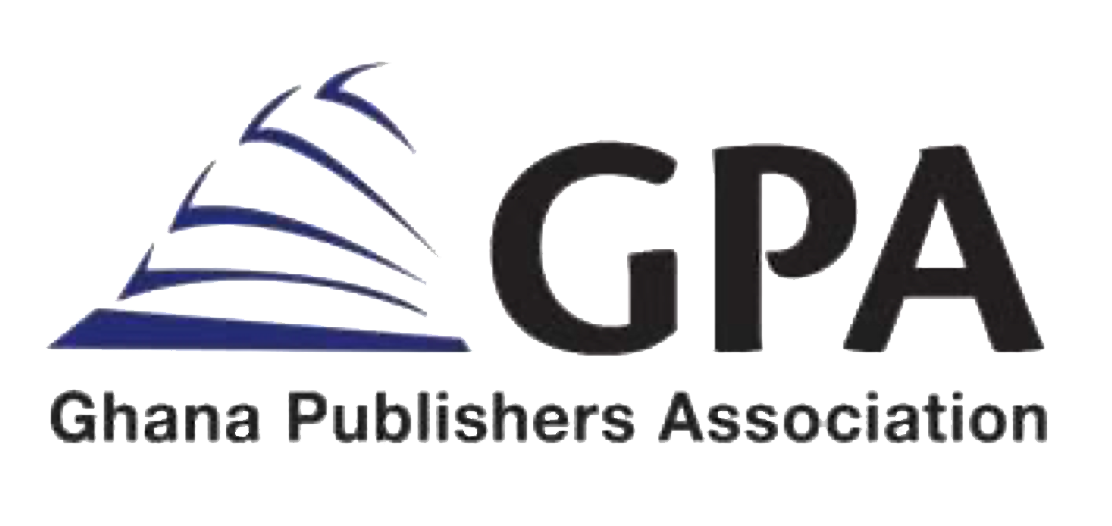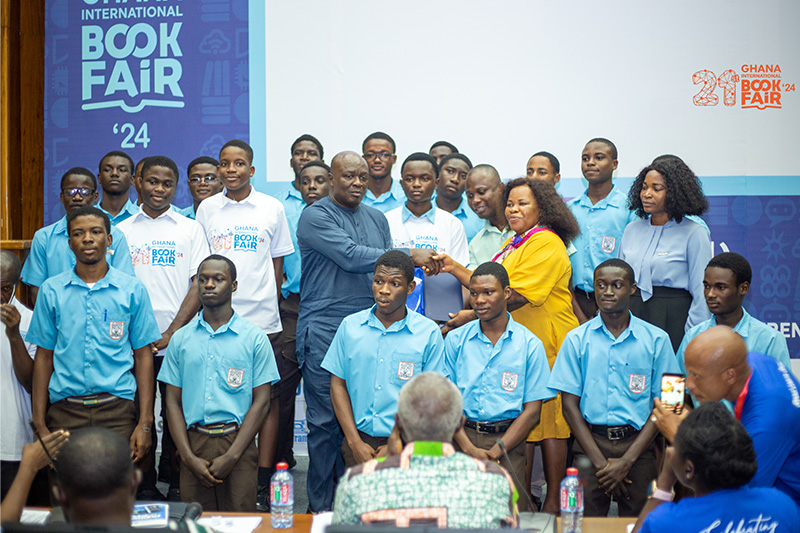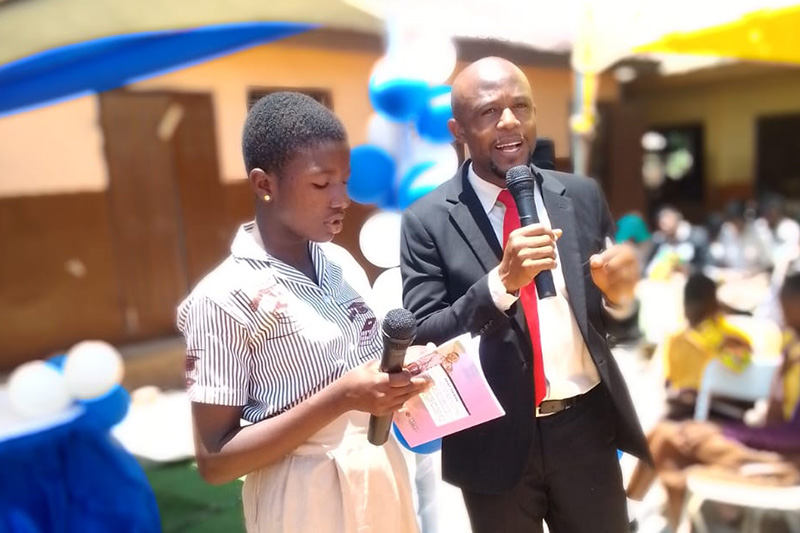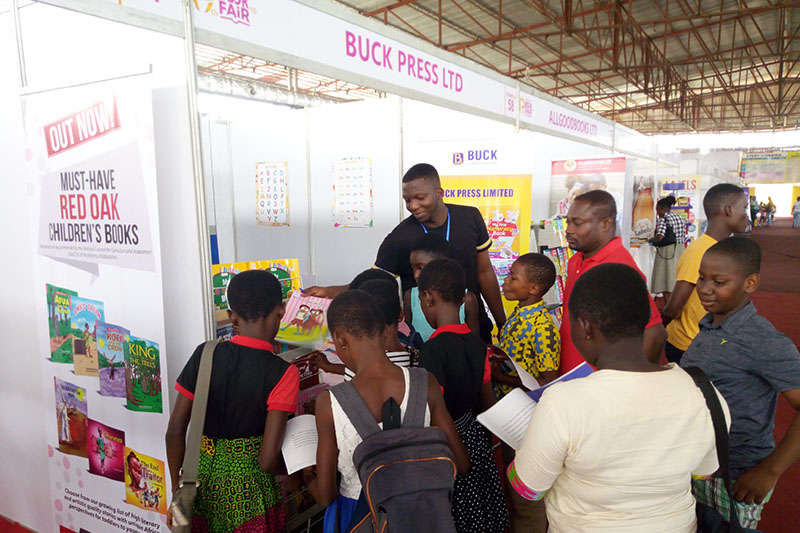Objectives
The GPA seeks to achieve the objectives which include but not limited to:
Some Contributions
Book publishing as a profession has contributed massively to the advancement of education and literacy in terms of quantity and quality of books to meet the needs of readers, students and the general public. Indigenous publishers have contributed immensely by changing the over-dependence on foreigners for books as in the case up to the 1970s. Publishers publish books which serve as the foundation for schools; develop and sustain culture and empower effective and efficient human resource for national development.
Book publishing in local languages has had gradual increment; however, good policies from government can advance the state of books in local languages as well as other books in general. The Association has worked with government on book procurement and has partnered with a number of organisations including Non-Formal Education Division (NFED) to buy books in the local languages from publishers as well as books procured by Ghana Book Trust, Ghana Book Development Council and Ghana Library Authority.
- Privatization of textbook publishing
Advocacy programmes for the Ministry of Education (MoE) to ensure that local publishers get the production of textbooks (1981 – 1986). - Importation of paper at a discount
GPA made a strong advocacy and the Ministry of Education allowed Ghana Revenue Authority to import paper at a discount for members of the Association. Unfortunately, it fizzled out only after a year (1987 – 1991).
In partnership with the Canadian Organization for Development through Education (CODE) in 1995 – 1996, six (6) regional book fairs were organized organised including Hohoe (8-11th Nov.,1995); Cape Coast (29th Nov., – 2nd Dec., 1995); Prestea, and Obuasi. Nine (9) seminars were also organised as part of the fairs. This also provided platforms to promote books and reading. Ghana Publishers Association and Ghana Book Development Council have jointly organized regional book fairs over the years. The recent ones were held in Kumasi (25th to 27th May, 2017 at the Kumasi Cultural Centre) and Sunyani (14th to 19th May 2019 at the Ebenezer Presby Church).
The Ghana International Book Fair (GIBF) was instituted in the mid-1990s to revive the book industry in Ghana. The Trade Fair Authority was therefore charged with the responsibility of initiating an international book fair in Ghana. The first one was held in November 6 – 12, 1996. Subsequent book fairs were held every two years. At the launch of the 2002 GIBF, Prof. Christopher Ekumfi-Ameyaw, the then Minister of Education, asked the Ghana Publishers Association (GPA), and other stakeholders in the industry to take over the organization of subsequent book fairs.
Hence some stakeholder organisations came together and Ghana International Book Fair Trust (GIBOFT) was duly formed and registered. Currently, the following stakeholder organisations form the planning committee with Ghana Publishers Association as the lead organiser:
- Ghana Publishers Association
- Ghana Association of Writers
- Ghana Book Development Council
- Ghana Library Association
- Ghana Printers and Paper Converters Association
- Ghana Library Authority
- Copyright Office
- National Council for Tertiary Education (NCTE)
- CopyGhanaThe GIBF brings together both local and international book players to exhibit books and to showcase various innovations created in the industry over the period as well as the general public to celebrate books and to participate in reading programmes, literacy games and other educative competitions; various workshops and other training programmes are also organized during the fair.
As a result of the serious concerns expressed by the stakeholders in the Book industry about the mass photocopying of literary works, members of the Ghana Publishers Association, Ghana Association of Writers and the Copyright Office formed a Planning Committee and started making efforts from 1999 to initiate the Collective Administration of literary rights in Ghana.
To further address the issue of literary rights in Ghana, the Writers and Publishers in collaboration with the Copyright Office of Ghana, the World Intellectual Property Organization (WIPO) and the International Federation of Reproduction Rights Organization’s (IFRRO) and Kopinor (Norway) made the collection of levies for rights owners successful.
Books were provided by the Book Aid International which could be borrowed in GPA’s library at a refundable fee. One could hold any book borrowed for 10 working days. The library was successful with the space support by the GBDC. This used to be GPA’s project to promote reading and literacy.
Contributions made at the MoE sponsored May 1998 Conference on Textbook Policy shaped the first draft of this document, which was published in October 1999. The members of the Textbook Working Group of the MoE worked assiduously during 2000 on its review and revision. The revised document was then debated and amended during detailed consultations in April 2001 with the MoE, the Ghanaian book trade (comprising representatives of the trade associations of publishers, booksellers, printers, authors, designers and illustrators, librarians etc) and Development Partners.
The Textbook Development and Distribution Policy (TDDP) seeks to ensure the development, selection and provision of good quality textbooks, teacher’s guides and supplementary reading books that will promote effective teaching and learning in schools. Unfortunately, it lacks legal backing and it is unenforceable. GPA intends to advocate for the GBDC, MoE and government to consider engaging stakeholders to shape and promulgate national book and reading policy into law to sanitize the industry.
The National Reading Competition organized by the Association enhanced national interest on reading. It was supported by Ghana Book Trust and the Ministry of Education.
Ghana Book Trust was buying books from publishers of the Association and distributing to deprived schools. Their promotion of literacy is progressive and should be continued.
- Training programmes – workshops, seminars, conferences, symposia
- Advocacy programmes – to encourage the establishment of good policies, rectifyunfavourable government policies and other issues confronting the Association andpublishers in Ghana.
- Organise Regional and International book fairs in Ghana
- Networking and represent members on international book fairs
- Information sharing and development of publications which include Ghana BookNews (GBPA Newsletter), Membership Directory, research reports and website.
- Enhancing Copyright protection and Anti-piracy measures
- Organise Publishers’ Meetings to discuss book publishing and industry issues.







